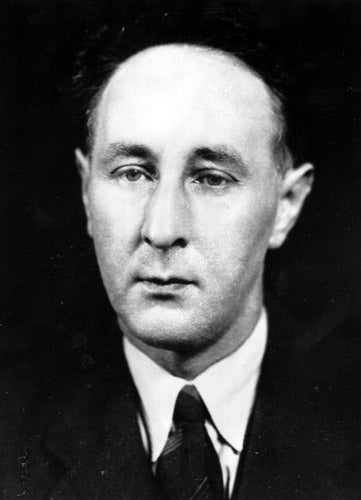Observations: Martinu benefits from BBC Symphony Orchestra's championship

Your support helps us to tell the story
From reproductive rights to climate change to Big Tech, The Independent is on the ground when the story is developing. Whether it's investigating the financials of Elon Musk's pro-Trump PAC or producing our latest documentary, 'The A Word', which shines a light on the American women fighting for reproductive rights, we know how important it is to parse out the facts from the messaging.
At such a critical moment in US history, we need reporters on the ground. Your donation allows us to keep sending journalists to speak to both sides of the story.
The Independent is trusted by Americans across the entire political spectrum. And unlike many other quality news outlets, we choose not to lock Americans out of our reporting and analysis with paywalls. We believe quality journalism should be available to everyone, paid for by those who can afford it.
Your support makes all the difference.It takes courage to programme six symphonies by a composer who has always struggled for even a sliver of attention. But Bohuslav Martinu, the 50th anniversary of whose death falls this year, is about to benefit from the BBC Symphony Orchestra's championship under the baton of his fellow countryman Jiri Belohlavek – and not a moment too soon.
Five words tell us why Martinu's life and work were so problematic: "Born in Bohemia in 1890". He faced the meltdown of musical style in the 20th century, the turmoil of war, the heartache of exile. Sure enough, it was only after 1941, when he escaped his adopted home of Paris for America, that he began to write the symphonies that feature in this series.
By the 1940s, the symphony was supposedly a genre of the past. Martinu, who remained "high-minded" about art in an era that scoffed at tonality, emotional expression and traditional structures, had a fight on his hands. He stayed strong. He preferred untrodden paths to following fashion. His influences mingled Stravinsky and Debussy, the Baroque concerto grosso and the Renaissance madrigalists. He pushed tonality to its limits, but always in his own way. And he remained incredibly prolific – his works number more than 400.
"The artist is always searching for the meaning of life... searching for truth," he wrote. "A system of uncertainty has entered our daily life. The pressures of mechanisation and the uniformity to which it is subject call for protest and the artist has only one means of expressing this: by music."
This is where anniversaries come in handy. Full marks to the BBCSO and Belohlavek for helping to set the record straight.
BBCSO's Martinu series begins on 3 Oct at Barbican, London EC1 (020-7638 8891)
Join our commenting forum
Join thought-provoking conversations, follow other Independent readers and see their replies
Comments